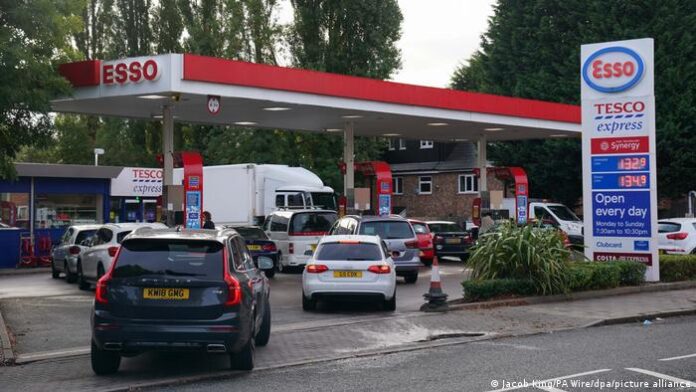In the past few weeks, the UK has been hit hard by the energy market crisis, with energy prices skyrocketing, providers going bust and serious shortages of gas. The crisis has also affected the food and logistics sectors, due to the lack of carbon dioxide, needed for safe transportation and longer shelf life. This was caused by the closure of energy intensive fertiliser producers who cannot sustain the high gas prices. The retail sector has already been experiencing difficulties due to the shortage of truck drivers to deliver products.
The latest issue that the UK is facing is the shortages of fuel in petrol stations and the panic among customers. Long lines of worried car drivers have caused disturbance in many petrol stations across the country, with some of them fighting over the last available litres of petrol. As a result, the UK government has decided to take immediate actions to ease the critical situation and ensure that enough fuel will be available at petrol stations.
UK suspends competition law to get petrol to forecourts
Amid the energy market crisis and the shortages of petrol in gas stations, the government decided to temporarily suspend the competition law and allow oil companies to target fuel deliveries at petrol stations in need. This urgent measure will help the fuel companies to communicate and optimise supply by prioritising deliveries in critical locations.
The Petrol Retailers Association has warned that almost two-thirds of their members, including 5,500 independent outlets, are out of fuel, with the rest of them “partly dry and running out soon”. The UK has more than 8,000 filling stations.
Borris Johnson has ordered the army to deliver fuel
The UK army will start to deliver fuel in the next few days in a response to the petrol supply issues. Around 150 military drivers are ready to drive the fuel tankers.
The army was put on standby if the situation deepens, however, on Wednesday the 29th of September, the business secretary, Kwasi Kwarteng, announced that the government has decided to seek help and let the army cover for the fuel shortage. Kwarteng also shared that some of the government’s 80 reserve fuel tankers will take to the roads with civilians driving the trucks from their depots in Cambridgeshire and West Yorkshire.
This comes after a few days of long queues outside petrol stations, customers trying to top up their cars in panic and petrol stations running out of supply.
Kwasi Kwarteng reassured that the government will take the necessary steps to ensure that the UK does not run out of fuel:
“The UK continues to have strong supplies of fuel. However, we are aware of supply chain issues at fuel station forecourts and are taking steps to ease these as a matter of priority,” he said. “If required, the deployment of military personnel will provide the supply chain with additional capacity as a temporary measure to help ease pressures caused by spikes in localised demand for fuel.”
How serious is the shortage of lorry drivers?
The coronavirus pandemic has caused a global shortage of lorry drivers, although there have been long-term labour issues due to the aging workforce, low wages, poor work conditions and new employment rules after Brexit. In the UK there has been a shortage of around 100 000 drivers. This has also caused further disruption in fuel deliveries for petrol stations and delayed deliveries for supermarkets.
Is Brexit to blame?
The shortage of HGV drivers has been an issue around Europe with countries such as Italy and Germany failing to employ enough drivers. In the UK, Brexit has caused even more disturbance as new regulations and rules have been put in place for foreing workers. Many of the drivers that used to work in England and have left the country before Brexit are unable to return. Before, they were able to easily work in the UK and move around the union. Furthermore, the decline of the pound against the euro has made the UK a less attractive market for EU workers.
Drivers have been paid based on the kilometers driven rather than on an hourly basis, meaning that any delay would cost them money. This combined with the tax changes makes it very financially unattractive for EU drivers to work in England.
The government takes immediate measures to save Christmas
The UK government has announced a temporary visa scheme to allow more than 10 000 foreing workers to work temporarily in the UK, for three months until Christmas. This will create work opportunities for 5 000 HGV drivers and 5 500 poultry workers. The announcement comes after the continuing difficulties and shortages in the energy and food sectors. The government hopes this measure will keep the supermarket shelves full and the petrol stations able to serve their customers. The retail sector had warned the government that they have only 10 days to save Christmas from a big shortage of products due to the lack of drivers.

| [donate]
| Help keep news FREE for our readersSupporting your local community newspaper/online news outlet is crucial now more than ever. If you believe in independent journalism,then consider making a valuable contribution by making a one-time or monthly donation. We operate in rural areas where providing unbiased news can be challenging. |


















